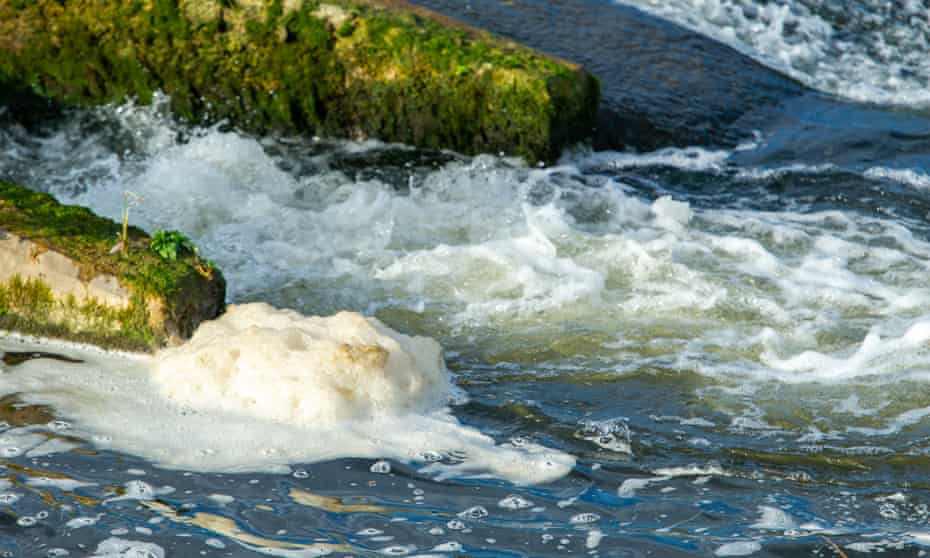The Guardian view on sewage: ministers must insist on a clean-up
People are rightly disgusted by the filth being poured into English rivers. Weak regulation is to blame

The decision by the Conservative MP Philip Dunne to support the government’s version of an amendment on tackling sewage, in preference to one put forward by the Duke of Wellington and voted for by peers, means that ministers have succeeded in blocking a revolt that had already caused them embarrassment. Since the government’s amendment is weaker than the House of Lords’ one, this is an unsatisfactory ending to a row that had been bubbling up for years, before erupting last month when the Lords decided to impose a new legal duty on water companies to reduce raw sewage discharges, in an amendment to the environment bill.
Mr Dunne’s move is significant because it was his private member’s bill, last year, that dramatically raised the temperature on an issue that has long troubled surfers, anglers and environmental groups – but rarely featured in headlines or in parliamentary debates until the Guardian began highlighting the scale of raw sewage discharges. That has now changed, hopefully for good. Thanks in part to smart campaigning, including the release of drone footage showing sewage being pumped into Langstone Harbour, a conservation area in Hampshire, huge numbers of people are now aware that there were 400,000 sewage discharges by water companies in England last year. The public reaction, which in many cases has been communicated to MPs, is anger and disgust.
The problem is not new. Failures by the water companies, their regulator Ofwat, and the government bodies including the Environment Agency that bear ultimate responsibility for the water system, date back many years. But the fact that the situation is getting worse rather than better, at a time when increased numbers of people are using rivers and waterways for swimming and other leisure pursuits, makes it unsurprising that patience has run out. By instructing MPs to vote down the Lords’ amendment, just days before the opening of the Cop26 summit in Glasgow, ministers signalled to those watching that their concerns, which include excessive profits, were not being taken seriously.
The concession that has been won by the combined efforts of dissident MPs, the House of Lords and civil society groups is worth having, in spite of shortcomings including the exclusion of sewage treatment plants. Against their wishes, ministers have been forced to accept that a “progressive reduction” in sewage outflows must take place. But we are an extremely long way from seeing the pollution stop. This will require substantial investment in infrastructure that has been neglected for decades – in spite of knowledge of climate change effects, including heavier rainfall.
New legislation, on its own, is not enough. The law already states that raw sewage should only be discharged in “exceptional” circumstances. Water companies take no notice. Southern Water, which was fined GBP90m this summer, had committed 168 previous offences and was criticised by a judge for “persistent pollution”. In future, regulators must become less reactive. The regime of permits overseen by the Environment Agency needs tightening, while Ofwat requires a reset. Inflated salaries and dividends paid in the water sector must be challenged. But the regulator must also broaden its role to take in environmental stewardship, recruiting experts where they are needed. When new housing is proposed, the impact on the local water supply and waste infrastructure must be addressed. Starting now, the most serious discharges must be proactively investigated.
Clean water campaigners have lined up their next target: the strategic policy statement that functions as a five-year plan for Ofwat. They want nature to be placed front and centre, and rightly point out that this is consistent with ministers’ own repeated promises with regard to the environment. Vast amounts of filth remain to be cleaned up.